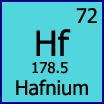 Fouad Al Zayat, a Syrian businessman and high-stakes gambler better known by London casino staff as “The Fat Man,” just lost an appeal he filed to have the U.K. to release property that the U.K. had blocked at Iran’s request. Yes, you read that correctly, property that had been blocked at Iran’s request.
Fouad Al Zayat, a Syrian businessman and high-stakes gambler better known by London casino staff as “The Fat Man,” just lost an appeal he filed to have the U.K. to release property that the U.K. had blocked at Iran’s request. Yes, you read that correctly, property that had been blocked at Iran’s request.
Part of the reason for this post is to add a little levity to the blog on a steamy Friday afternoon in August. The other reason is because, believe it or not, there is actually a U.S. export law angle to this story, as reported today by Bloomberg.
The story begins almost five years ago when Al Zayat made a $120 million deal with Iran to buy an Airbus 340 from the Sultan of Brunei to convert it into a VIP plane for high muckety-mucks in the Iranian government. In a not-very-focused moment, the imams gave Al Zayat the $120 million before they got the plane. (Note to Iran: don’t give money to notorious high-stakes gamblers without getting the goods first).
Instead of being a good boy and actually using the proceeds from Iran to buy the Sultan’s A340, Al Zayat apparently used the funds to settle multi-million dollar gambling debts he owed to Ritz Hotel Casinos Ltd and to buy property in London. The imams were not amused, and so they enlisted an army of solicitors and the U.K. judicial system to freeze Al Zayat’s assets in Great Britain.
Al-Zayat appealed the blocking order and — alert: export law angle ahead — claimed that there was a commercial dispute between him and Iran, in large part over the cost of refitting the plane and still complying with U.S. sanctions:
Al Zayat told the court his expenses were “enormous” because even though he planned to buy the plane for $85 million, Deutsche Lufthansa AG had a $20 million interest in it and the aircraft had to be converted in a way that ensured U.S.-imposed economic sanctions against Iran were respected.
As you’ll see below, Al Zayat had a plan for complying with the Iran Sanctions law that wouldn’t have cost more than about $50,000.
Now, you may be scratching your head and thinking that you’ve heard about Fouad Al Zayat before. And you have. He has a walk-on role in the affair of Bob Ney, the Ohio Congressman now languishing in the slammer for bribery. Al Zayat was mentioned in the Ney indictment as the “foreign businessman” who flew Ney and two staffers to London for a night of gambling, with an enormous pile of free chips included courtesy of Al Zayat.
Why, you ask, was Al Zayat bribing Ney? It’s all about the imam’s VIP A340. Al Zayat wanted to get an exemption to put U.S. parts in the VIP plane. Paul Kiel at TPMmuckracker finishes the story:
Ney walked away from their night of gambling with over $50,000 … . But Ney didn’t want to declare the full amount to customs when he re-entered the U.S. So he gave $5,000 to one of his staffers … to carry through customs. And in order to save Ney the trouble of depositing the money into a bank once they returned, “Heaton stored this money in the safe of Ney’s Congressional Office,” according to the charging documents, “opening the safe as requested so that Ney could make repeated withdrawals.”
Bob Ney was, apparently, the only person in the United States who ever got rich because of the U.S. sanctions against Iran. And Al-Zayat’s plan to fix his Iran Sanctions problem for the cost of a Congressman didn’t work out so well, either for him or the Congressman.

 Posted by
Posted by  Category:
Category: 

 Devotees of the New Yorker will no doubt remember items that used to be short entries titled “There Will Always Be an England.” A typical item under that heading recounted humorous but true anecdotes of quaint English behavior. You know, the story of an eccentric don who wins the lottery and uses the proceeds to buy first-class plane tickets to Sardinia for two voles that he nursed back to health after they were run over by a lorry in Dorset.
Devotees of the New Yorker will no doubt remember items that used to be short entries titled “There Will Always Be an England.” A typical item under that heading recounted humorous but true anecdotes of quaint English behavior. You know, the story of an eccentric don who wins the lottery and uses the proceeds to buy first-class plane tickets to Sardinia for two voles that he nursed back to health after they were run over by a lorry in Dorset.  Stephen D. Mull, formerly the U.S. Ambassador to Lithuania and now the Acting Assistant Secretary for Political Military Affairs at the State Department,
Stephen D. Mull, formerly the U.S. Ambassador to Lithuania and now the Acting Assistant Secretary for Political Military Affairs at the State Department,  Another day, another foreign subsidiary of a U.S. company caught shipping stuff to Iran.
Another day, another foreign subsidiary of a U.S. company caught shipping stuff to Iran.  An
An 

